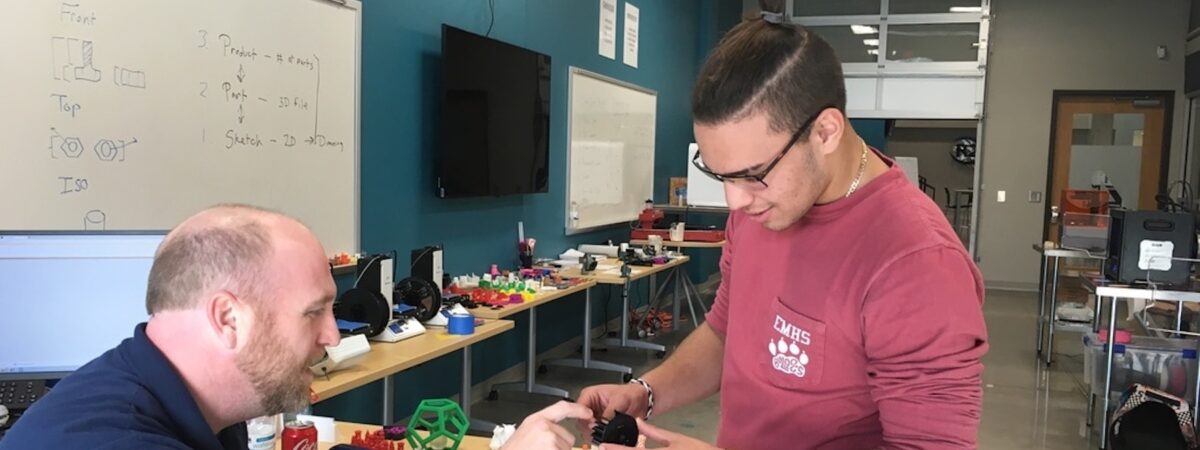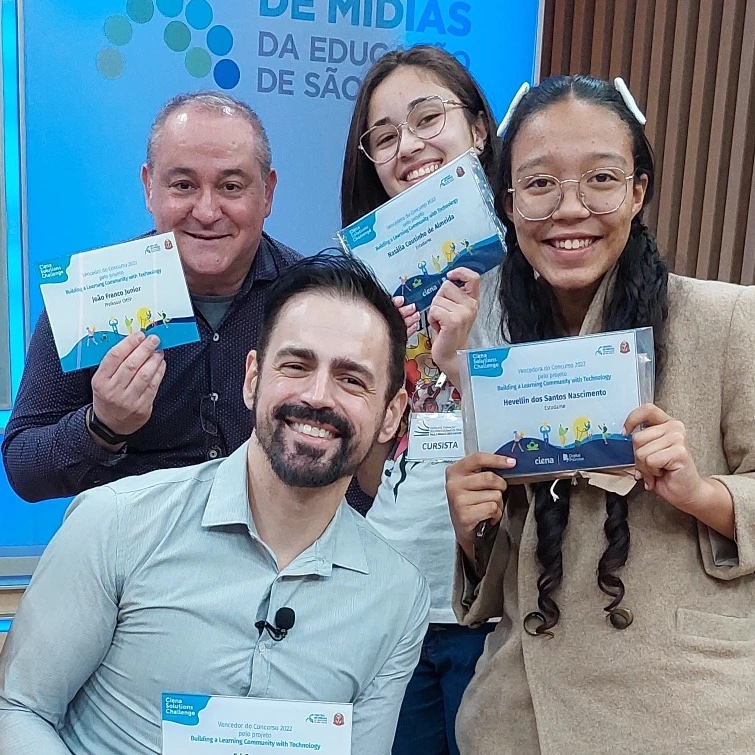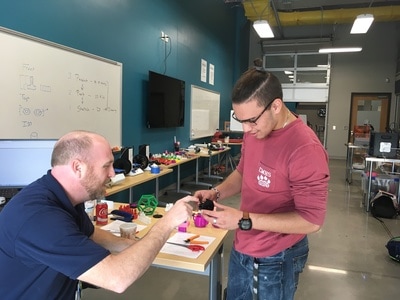
Digital Promise is excited to commemorate this year’s International Day of Education, a day established by the United Nations General Assembly “in celebration of the role of education for peace and development.” This year’s theme is “learning for lasting peace”—a concept that resonates deeply with our goal of creating equitable education systems that connect learners around the world with powerful learning experiences that lead to well-being and fulfillment.
Our Global Education practice has been working to unlock the potential of all learners to thrive in a global society in five key ways:
Through three of our current global initiatives, we are promoting peace by empowering learners with the knowledge, skills, competencies, and values that they need to become agents of change in their communities.
The Ciena Solutions Challenge is a global design challenge inviting middle and high school students to design solutions to the UN Sustainable Development Goals (UN SDGs) in their communities. By leveraging the Challenge Based Learning framework, students identify a challenge in their community, learn deeply about the challenge, and create a solution to address it.
In São Paulo, Brazil, Ed Gomes Jr., an English-as-a-second-language, literature, and linguistics teacher, supported his students’ project, Engaging Youth Protagonism Through Safe Zones. As schools reopened following COVID-related school closures, students recognized that their social skills had decreased, leading to an uptick in bullying. To address this, the students created Safe Zones using underutilized areas of their school.
“The idea of the Safe Zones starts with a room, but it becomes a safe school and ultimately, a safe community. In recent months, students have continued to iterate and make adjustments to the Safe Zones, and, together, we are working to get support from the secretary of education and to receive media coverage that will help us to spread the initiative to other areas and schools across São Paulo. As we all readapt to in-person routines, the idea of a Safe Zone has even been replicated for teachers, including in the headquarters of the secretary of education and at EFAPE (School of Teacher Development),” said Ed Gomes Jr.
As a result of this project, other schools in São Paulo have developed community partnerships for similar initiatives, including creating an anti-racist library and teaching about antisemitism.

Ed Gomes Jr. and his students receive their Ciena Solutions Challenge certificates.
Rapid economic, technological, and social changes connect people across the globe as never before. Consequently, it is increasingly important that students develop global competence, which includes the ability to examine local, global, and cross-cultural issues; understand and appreciate the perspectives of others; effectively communicate with diverse audiences; and take action for collective well-being and sustainable development.
These skills are important for career and technical education (CTE) and one easy way to promote them is to incorporate projects related to the UN Sustainable Development Goals into CTE courses. Our library of projects covering every CTE sector and all 17 UN SDGs can empower students to recognize their shared humanity and how they can contribute to making the world a better place.
Kirstin Bullington, who teaches clean energy technology at the Richland Two Institute of Innovation in Columbia, South Carolina, has integrated global projects into her courses. As part of the school’s global impact focus, her students have many ongoing global projects, including devising modular solar power systems with communities in rural Senegal and Vrygrond, South Africa; sharing food-waste solutions with high school students in Japan; collaborating on sustainability solutions with a high school in Berlin; and creating applications to solve community challenges with a high school in Guadalajara, Mexico.

A CTE teacher and student from the Richland Two Institute of Innovation collaborate on a prototype that might address flooding in the local community.
For many years, Digital Promise has offered competency-based micro-credentials to adult learners as a natural extension of the formal and informal learning activities individuals engage in every day. We are excited to be developing opportunities for younger learners for the first time through a student micro-credential pilot focused on global career readiness skills. Through this program, secondary and postsecondary students (ages 13 and above) will be eligible to earn micro-credentials related to three global, career-ready skills: communication, research, and teamwork. These micro-credentials are a valuable way to expand students’ learning and to formally demonstrate these critical skills to future employers.
Interested in learning more about our global education work or partnering with us?